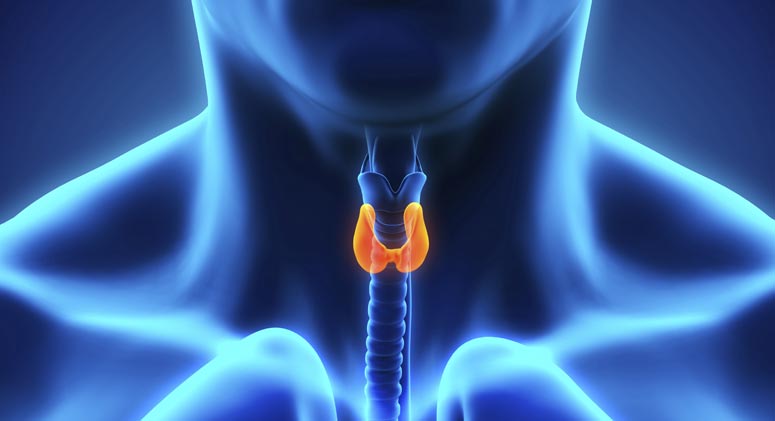What Do You Know About Thyroiditis?
Excess weight gain and excess weight loss are some of the common issues widely known to be caused by the malfunctioning of the thyroid gland. There are various disorders associated with the gland’s ill-functioning, however, we are going to focus on a particular one i.e. ‘thyroiditis’ - which is referred to as the inflammation occurred in the thyroid gland.
The butterfly-shaped gland significantly manages our metabolism while assisting different vital organs of our body, such as the lungs, brain, and heart.
Causes
Now, what exactly causes the thyroid gland to be inflamed? Not widely understood, thyroiditis is actually said to be an autoimmune disease because it is triggered by the body’s self-attack. In other words, the immune system creates antibodies called thyroiditis antibodies which attack the thyroid gland leaving its cells damaged, thus causing inflammation.
While it is conjectured to be hereditary, there is yet no cemented explanation as to why some people create thyroiditis antibodies. Nevertheless, the thyroid disorder is closely compared with rheumatoid arthritis, juvenile diabetes, and other similar autoimmune diseases.
Types
Let’s look at the different variations of thyroiditis:
Postpartum Thyroiditis - It usually results in the production of excess portions of thyroid hormones in the blood, which is called thyrotoxicosis. It is named “postpartum” because the inflammation of the thyroid gland occurs after giving childbirth. As high amounts of thyroid hormones get produced, the metabolic rate speeds up, inducing disruption to the regular bodily activities.
Hashimoto’s Disease - This one, contrastingly, is common, and leads to an underactive thyroid gland as it fights the attack from the body’s own immune system. This condition is called hypothyroidism, which slows down the body’s growth and mental development.
Subacute Granulomatous Thyroiditis - This type commonly accompanies pain and respiratory infections.
Drug-Induced Thyroiditis - People suffering from this also experience pain in the thyroid gland; however, the main reason why it gets triggered is due to the interference of certain medications and drugs (e.g. interferon, amiodarone, and lithium), with the thyroid gland. Some of these drugs are also used in the treatment of certain cancers.
Subacute Lymphocytic Thyroiditis - Though it is quite similar to postpartum thyroiditis, this type of thyroiditis has no relation to pregnancy. Women, typically, experience a short period of hyperthyroidism as the thyroid gland keeps swelling. However, there is absolutely no, or very minute, pain associated. That’s why this form of thyroiditis is also referred to as “silent thyroiditis.” Strangely, some people may develop permanent hypothyroidism after going through the short hyperthyroidism period.
Symptoms
While there are specific signs and symptoms to look for in order to diagnose a particular variation of thyroiditis, the postpartum form makes diagnosis more intricate because it occurs within a year post birthing. Having said that, the symptoms are mostly related to the stress of going through postpartum or newborn depression.
Here are some of the common signs:
- Pain proceeding up to the jaw and ears due to swollen or painful thyroid gland
- Enlarged or hardened thyroid gland
- Dryness
- Swelling near the eyes
- Decreased heartbeat (<60/min)
- Hoarse voice
- Loss of appetite
- Feeling feverish
- Lethargy and fatigue
- Weight loss
- Constipation/Gastritis
- Sweating and anxiety
Treatment
Of all, acupuncture is mostly used to check the excesses associated with thyroiditis including the underlying deficiencies. Nonetheless, the chief usability is to correct hormonal imbalances. Other treatment options include medication and surgery, where the latter is considered in very rare cases.
Nutrition
Prevention is better than cure. Before considering the above treatments it is better to stick to suggested regimens with a desire to stay shielded against thyroiditis. Knowing which foods to avoid and which foods one should eat is one way.
Processed foods, wheat, sugar, alcohol, and caffeine are blacklisted for making the condition worse. In addition to that, daily consumption of soy could cause interference in thyroid functions. If soy is your daily food item, you may want to have a word with your physician.
Lowering thyroid activity is the first step for starters. Dark leafy greens like kale, broccoli, spinach, and cabbage are great to have first up. However, if you’re struggling with underactive thyroid activity you want to be conscious of avoiding them.
Exercise
There’s no better cure, and prevention for that matter, for any disease than daily exercise. As far as the thyroid functionality is concerned, exercise helps to improve it for both cases of hyperthyroidism and hypothyroidism.

Related Keywords







